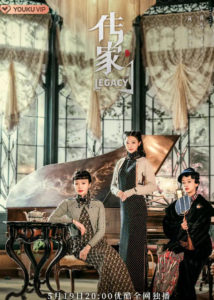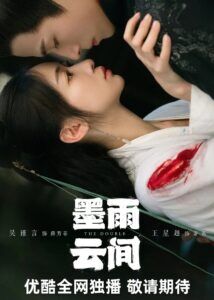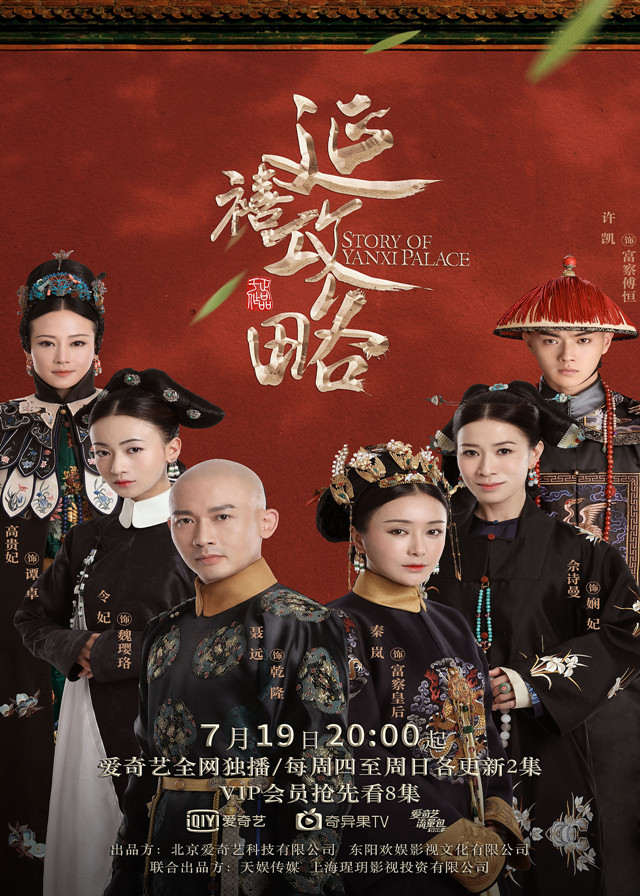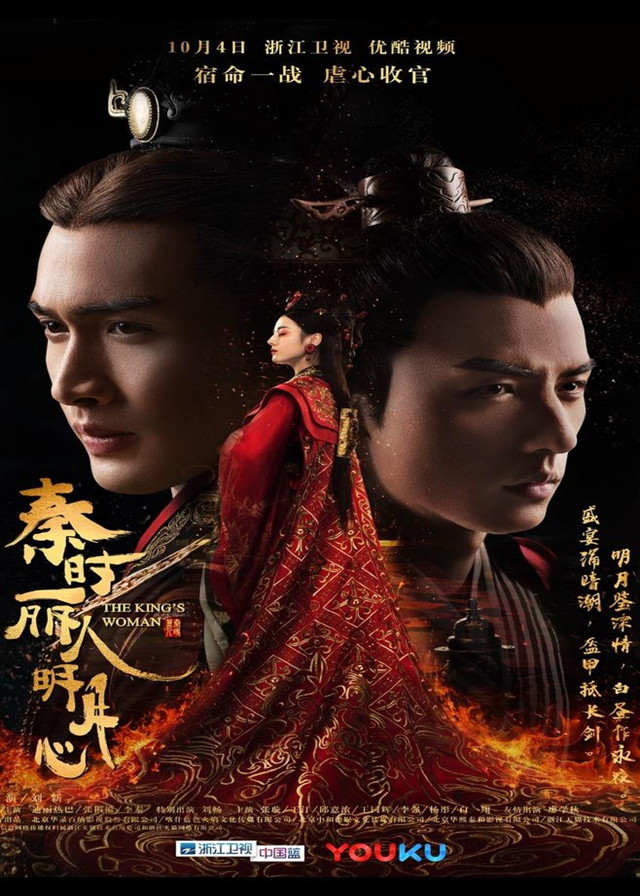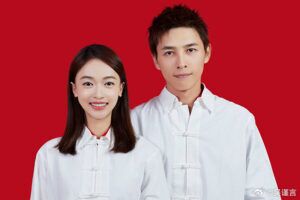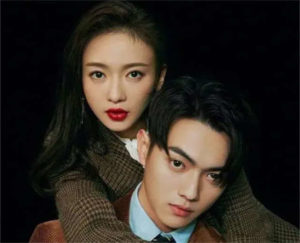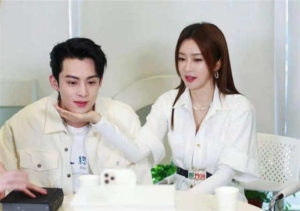Story of Yanxi Palace Episode 1 Recap
> Story of Yanxi Palace Recap
- 1
- 2
- 3
- 4
- 5
- 6
- 7
- 8
- 9
- 10
- 11
- 12
- 13
- 14
- 15
- 16
- 17
- 18
- 19
- 20
- 21
- 22
- 23
- 24
- 25
- 26
- 27
- 28
- 29
- 30
- 31
- 32
- 33
- 34
- 35
- 36
- 37
- 38
- 39
- 40
- 41
- 42
- 43
- 44
- 45
- 46
- 47
- 48
- 49
- 50
- 51
- 52
- 53
- 54
- 55
- 56
- 57
- 58
- 59
- 60
- 61
- 62
- 63
- 64
- 65
- 66
- 67
- 68
- 69
- 70
On a significant day in early June, the Forbidden City prepared for the grand selection of new palace maids and candidates for the imperial harem. Among the new palace maids arriving was Wei Yingluo, who, upon entering, observed numerous elegantly dressed young women – these were the candidates for the selection in the palace hall, hailing from prestigious families, a stark contrast to the humble origins of girls like Wei Yingluo and her companions.
When palace maid Ji Xiang was accidentally pushed by Jin Xiu, her water bucket fell, splashing onto Uya Qing Dai, one of the noble candidates. Uya Qing Dai, feeling deeply insulted, slapped Ji Xiang and threatened to cripple her hand as compensation, insisting that her specially purchased gambiered silk gown for the selection was ruined. Despite Ji Xiang's desperate pleas, Uya Qing Dai remained unforgiving. Witnessing the injustice, Wei Yingluo quickly devised a plan.
She cleverly asked fellow maid Ling Long for her scented sachet, then offered to assist Uya Qing Dai. Wei Yingluo embedded rose powder into the soles of Uya Qing Dai's shoes, creating the illusion of lotus flowers blooming with every step she took. Wei Yingluo then eloquently recounted the historical anecdote of Noble Consort Pan of the Southern Qi Dynasty, whose "lotus steps" had captivated an emperor.
Impressed by this ingenious flattery and the unique effect, Uya Qing Dai, softened by Wei Yingluo's submissive "pug-like" demeanor, decided to spare Ji Xiang's hand. After the candidates departed, Jin Xiu blamed Ji Xiang for almost getting them all into trouble, igniting Ji Xiang's anger.
Ji Xiang questioned why Wei Yingluo had helped the unkind Uya Qing Dai, to which Wei Yingluo sagely remarked that in the palace, blessings and misfortunes are often intertwined, and the outcome of the "lotus steps" was yet uncertain. Meanwhile, within the Changchun Palace, the Empress was urged by her maids, Er Qing and Ming Yu, to prepare for the upcoming selection.
The Empress, still bearing the sorrow of her Second Prince's passing three years prior, had grown distant from the Emperor and showed little enthusiasm for palace affairs, preferring to tend to her flowers. Ming Yu reminded her that her absence would grant an advantage to Noble Consort Gao and might displease the Empress Dowager. Reluctantly, the Empress agreed to attend, noting how much her young maids nagged.
Noble Consort Gao, ever conscious of her elevated status and the growing influence of her family in court, behaved with open arrogance. She frequently challenged the Empress, but the Empress, known for her composure and dignity, chose to overlook her provocations. When the formal selection of candidates commenced, Uya Qing Dai's "lotus steps" indeed drew the Emperor's attention, and he requested to see her shoes.
However, to Uya Qing Dai’s shock, the Emperor condemned foot-binding as a decadent Han practice and connected the "lotus steps" anecdote to a bewitching concubine and an incompetent king. He not only expelled Uya Qing Dai from the palace but also ordered her father to be punished as a warning. Next, Nalan Chun Xue, dressed in a style that adhered to traditional Manchu customs, explained that wearing three earrings per ear and elevated platform shoes honored their ancestors.
Her reverence for tradition earned the Emperor's approval, securing her selection. The Emperor then departed, entrusting the Empress with the supervision of the palace maid selection. The newly admitted palace maids were then required to undergo an embroidery assessment to determine their suitability for retention. During the test, Ji Xiang accidentally pricked her finger, staining her embroidery with blood. Jin Xiu seized the opportunity to mock her, suggesting she was unfit for palace life.
Ji Xiang sought help from Ling Long, with whom she had grown up, but Ling Long refused to assist, prioritizing her own unfinished work. Seeing Ji Xiang in distress, Wei Yingluo secretly swapped her nearly completed embroidery piece with Ji Xiang's blood-stained one. Wei Yingluo then proceeded to cleverly embroider a golden carp over the stain on Ji Xiang's piece. Other maids, including Ji Xiang, warned Wei Yingluo that she was inviting trouble, but Wei Yingluo remained confident.
When the embroidery assessment concluded, Chief Wu, who was evaluating the maids' work, was highly impressed by the piece attributed to Ji Xiang and intended to rank it first. Jin Xiu, witnessing this, deliberately drew Chief Wu’s attention to Wei Yingluo, pointing out that she had taken the longest and implying her work should be scrutinized. To Jin Xiu's dismay, Wei Yingluo's work, the original piece she had swapped, also garnered favor from Chief Wu and Madam Zhang.
Just then, a palace maid who had been previously criticized for poor embroidery openly accused Wei Yingluo of cheating on behalf of Ji Xiang. The accusing maid presented a convincing case, detailing how Wei Yingluo and Ji Xiang had exchanged their embroidery pieces. Ji Xiang, overcome with guilt, was on the verge of confessing. However, Wei Yingluo remained composed. She deftly argued that when they exchanged pieces, neither embroidery was complete, thus it constituted a collaboration rather than cheating.
Chief Wu was pleased by Wei Yingluo's quick thinking and praised her for her "talk less and work more" attitude, urging the other maids to learn from her. Consequently, Wei Yingluo and Ji Xiang were permitted to remain in the Embroidery Workshop.
The Emperor later presented each of the consorts in the Eastern and Western Palaces with a plaque inscribed with the phrase "Cultivate Inner Discipline" and a "devotion painting," intending to foster harmony and discourage rivalry among them by encouraging emulation of virtuous ancient empresses and consorts. Ming Yu expressed her displeasure over Noble Consort Gao's arrogant behavior during the selection, but the Empress calmly dismissed her concerns, instructing her maids to hang the devotion paintings on a later auspicious day.
Noble Consort Gao initially feared the Emperor's gift was a reprimand for her contentious relationship with the Empress. Fortunately, Concubine Jia intervened, explaining that the Emperor had gifted similar plaques and twelve different paintings to all six palaces, suggesting it was merely an imperial caprice to inspire virtuous conduct, not a personal slight against Noble Consort Gao. Consort Xian, Noble Consort Gao, and the Empress had all entered the prince's manor together when the Emperor was still Prince Bao.
Unlike the Empress, whose Fuca clan boasted generations of high-ranking officials, and Noble Consort Gao, whose family commanded significant influence in court, Consort Xian maintained a quiet, unassuming presence in the palace, neither contending for favor nor wealth. Consequently, she received little imperial attention, despite her reputation for virtue. Her mother frequently visited, weeping and pressuring Consort Xian to secure a better position for her father.
Consort Xian, however, steadfastly refused, citing the palace rule against the harem meddling in political affairs. Her mother, frustrated by her daughter's lack of ambition and failure to advance the family’s interests, departed in a huff. Consort Xian, left alone, quietly expressed her simple wishes: for her husband to live a long life, for her own health, and for them to be together like sparrows on a beam, year after year.
Meanwhile, the Emperor confided in his Chief Eunuch that he found the women of the imperial harem too idle, which inevitably led to trouble. He explained that by bestowing the devotion paintings, he hoped to keep them occupied with contemplating their meaning. He believed that, being "dumb" like the eunuch himself, most consorts would misinterpret his intention as a genuine desire for them to become virtuous, thus inspiring them to behave well and granting him a few days of peace.
The Chief Eunuch then realized the Emperor was merely toying with them. Later, Wei Yingluo, Ji Xiang, and other new palace maids, led by Madam Zhang, proceeded deeper into the palace. Along the way, they witnessed Noble Consort Gao’s elaborate procession, its splendor almost rivaling that of the Empress. Ji Xiang, awestruck, expressed her envy, but Wei Yingluo remained indifferent.
Another senior maid corrected Ji Xiang's ignorance, explaining that only the Empress's procession was called an "Yi Jia," while a Noble Consort's was an "Yi Zhang," and other consorts used a "Cai Zhang," and only if they were the principal mistress of a palace. Noble Consort Gao then held a meeting with the various consorts. She noticed Noble Lady Yu's absence, and Concubine Yi reported that Noble Lady Yu was unwell and had taken leave.
Noble Consort Gao, seemingly concerned, remarked on the "malevolent breeze" causing illnesses in the Forbidden City. She urged all the consorts, both sick and healthy, to recover quickly and maintain their spirits, warning them not to be overshadowed by the incoming new concubines.





